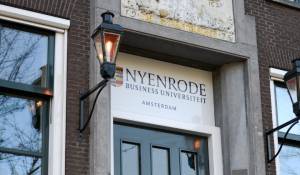Few schools have global brand equity (Few Americas know IESE; Few Europeans know Fuqua or Tuck). Indeed, and not all have continent-wide reputations (few Indians know CIEBS). It's even harder for young schools. SKK has an excellent full-time FT with a strong position in the Korean market. Perhaps it's a bit more internationally oriented, informal and interactive than the MBAs from the 'SKY' universities, and it's been able to attract almost half the class from abroad, including a notable minority of international students from outside Asia, particularly through double degree programmes. Compared to many other MBAs, the students are a little older, often sponsored by Korean companies and many aged around 30 (Korean schools do even better in the EMBA ranking). There's strong support for language learning and an excellent career development service really focussed on coaching students and offering personal advice on networking (which in Korea involves a lot of eating and drinking) and acculturation for the Korean market.
Without a doubt, both the full-time and joint EMBA with Indiana aim to primarily service their domestic market and offer a way for Korean business leaders to be able to better work in English and get exposure to new perspectives, and use an interactive classroom approach. A US-style interactive classroom discussion with different opinions and lots of teamwork can be challenging for participants in some other Asian schools. The Western education style is highly favoured in Korean businesses, and many leaders have studied in the West. Many of the faculty have international PhDs and teaching experience. The students are smart. In a nutshell, it's made a lot of progress in just 15 years, and which entered the FT ranking as early as 2012: very fast!
Outside its domestic market, SKK has little brand equity. It's well located, in Seoul. Like many East Asian programmes that need a critical mass or foreigners to get groups working in English, it has generous incentives for some foreigners. It has better financial aid and scholarship options than many students. However, if you need placement support and do not want to work in Korea, it makes little sense.
[Edited by StuartHE on May 19, 2021]
Few schools have global brand equity (Few Americas know IESE; Few Europeans know Fuqua or Tuck). Indeed, and not all have continent-wide reputations (few Indians know CIEBS). It's even harder for young schools. SKK has an excellent full-time FT with a strong position in the Korean market. Perhaps it's a bit more internationally oriented, informal and interactive than the MBAs from the 'SKY' universities, and it's been able to attract almost half the class from abroad, including a notable minority of international students from outside Asia, particularly through double degree programmes. Compared to many other MBAs, the students are a little older, often sponsored by Korean companies and many aged around 30 (Korean schools do even better in the EMBA ranking). There's strong support for language learning and an excellent career development service really focussed on coaching students and offering personal advice on networking (which in Korea involves a lot of eating and drinking) and acculturation for the Korean market. <br><br>Without a doubt, both the full-time and joint EMBA with Indiana aim to primarily service their domestic market and offer a way for Korean business leaders to be able to better work in English and get exposure to new perspectives, and use an interactive classroom approach. A US-style interactive classroom discussion with different opinions and lots of teamwork can be challenging for participants in some other Asian schools. The Western education style is highly favoured in Korean businesses, and many leaders have studied in the West. Many of the faculty have international PhDs and teaching experience. The students are smart. In a nutshell, it's made a lot of progress in just 15 years, and which entered the FT ranking as early as 2012: very fast! <br><br>Outside its domestic market, SKK has little brand equity. It's well located, in Seoul. Like many East Asian programmes that need a critical mass or foreigners to get groups working in English, it has generous incentives for some foreigners. It has better financial aid and scholarship options than many students. However, if you need placement support and do not want to work in Korea, it makes little sense.

-94c63.png)
-567a7.jpeg)
